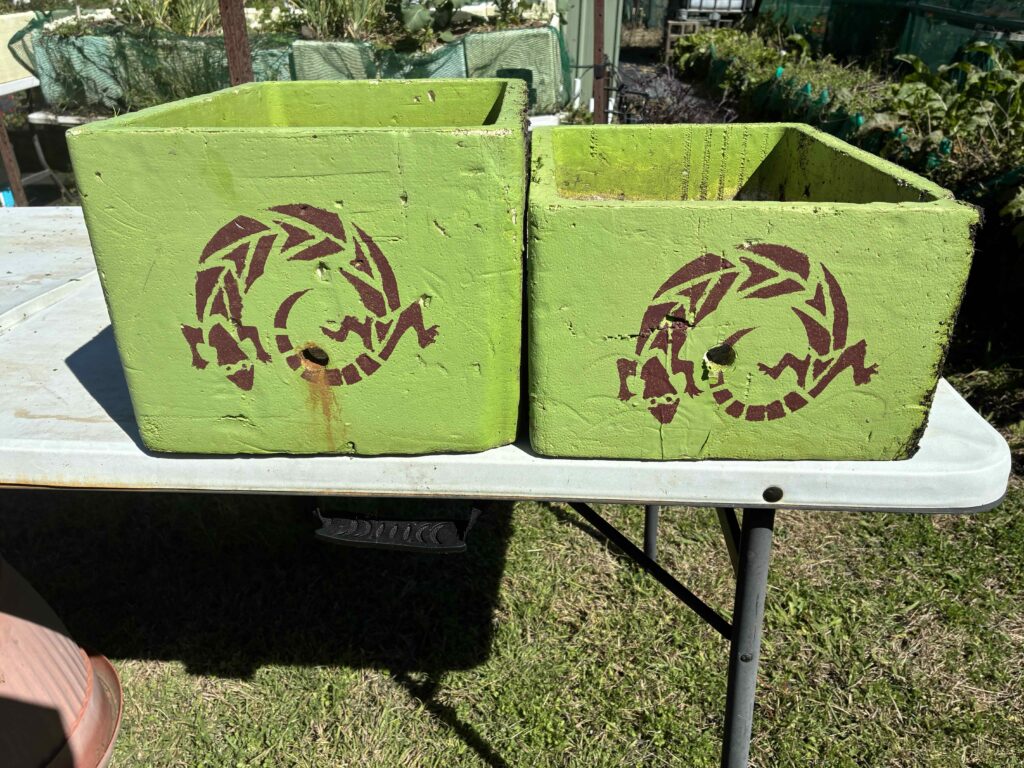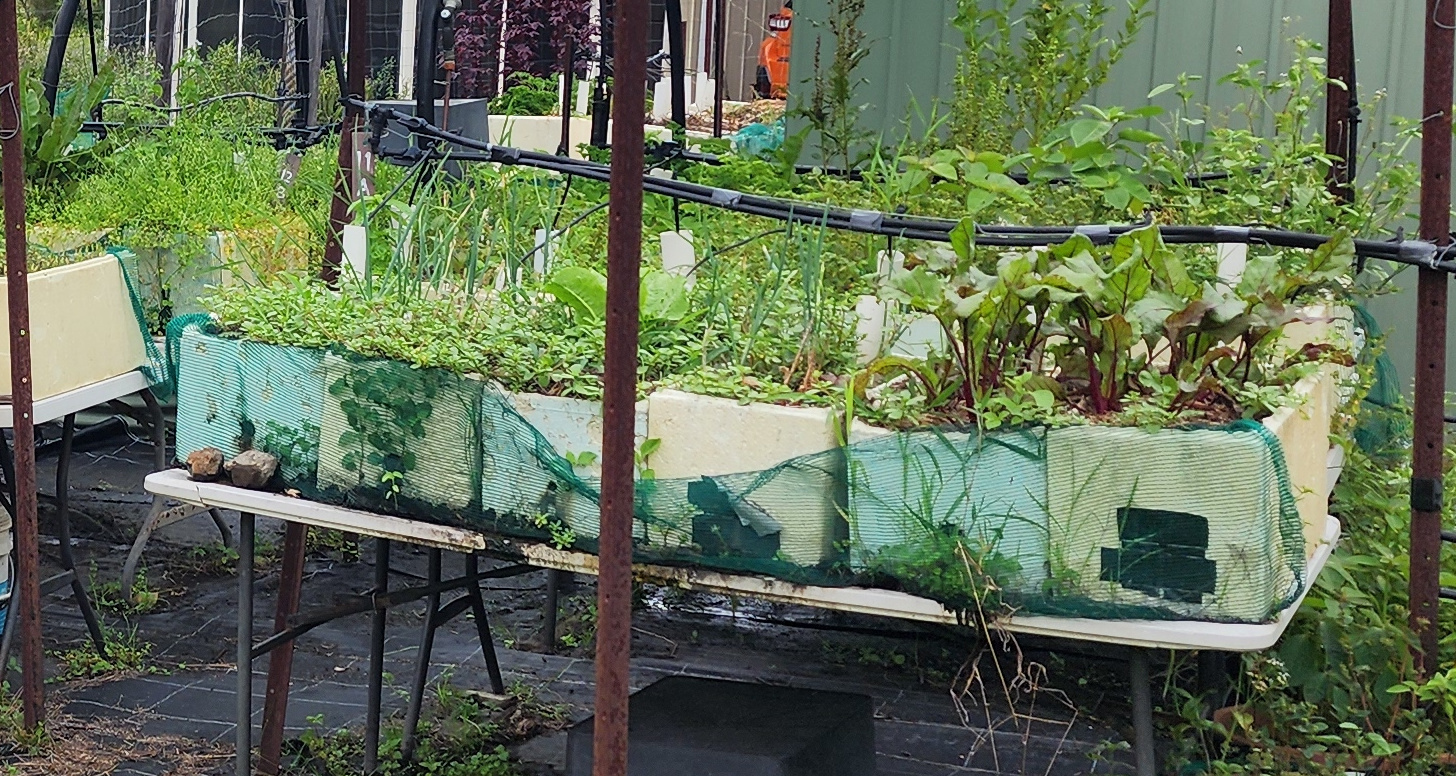Converting Styrofoam boxes into wicking boxes is a cheap and simple way to grow at least some of your own healthy food at home. They are portable and smaller boxes fit on a 1.8 m table, so even patios and concrete slabs can become useful places to grow. They can be made with common household tools, and most parts can be bought cheaply or acquired for free.
Be aware that there are on the Internet a lot of guides about making wicking beds that are flawed – even on the ABC – as explained in common misconceptions and design flaws of commercialised and popularised wicking beds.

Materials
- Watertight box of any size. The example uses a 30 litre broccoli box made of Styrofoam.
- A length of 90 mm storm drainpipe (PVC pipe) long enough to go across the long edge of your box.
- 500 mm of 40 mm PVC pipe
- 90 mm of mosquito screen
- Duct tape
- Where pardalotes are present, a strip of shade cloth.
Getting Started
Once all the materials on hand, please read through the instructions in advance to prepare the bits and put them together.
Preparing the Box

Drill a 10 mm hole in the centre of a short side of the box, 95 mm from the bottom edge, so it opens directly into the top of the reservoir pipe. This prevents them from being clogged up by worms. The 10 mm size keeps cane toads out, as larger holes allow small ones to enter. The box can be painted and made a bit more attractive. The green boxes above were made by a girl guide to get a gardening badge.
Cutting the Pipes
Cut a 90 mm PVC drainpipe to fit lengthwise inside the box, this will be the water reservoir pipe. Measure carefully, as box sizes can vary in wall thickness and some may be tapered at the base. If needed, cut wedges from the ends of the pipe to ensure it sits flat at the bottom.
Cut two 60 mm holes in the water reservoir pipe, positioning the centres 150 mm from each end. On the opposite side of these large holes, cut a 40 mm hole for the fill pipe, positioned about 70 mm from one end. Take care to ensure the hole is drilled on the opposite edge so that the 60 mm holes face straight down. Cover the end of the pipe at opposite of the overflow with duct tape to prevent soil from washing in.
Cut a 500 mm piece of 40 mm PVC pipe and insert it into its hole in the water storage pipe. Use a round file or sandpaper to ensure a snug fit, if necessary.
Putting it All Together
Place the water storage pipe in the box with the large holes facing the bottom. Position the fill pipe opposite the drain hole. Attach mosquito screen to the end of the fill pipe to keep mosquitoes and other small creatures out of the reservoir.
While filling the box with soil, pack some of it behind the closed end to ensure the open end fits snugly against the side of the box. For soil recommendations, see our guide to making your own healthy soil.
Before planting your first seedling, saturate the box by filling the reservoir with water, then water from the top until water begins to flow out of the overflow. A 30-litre box may need about 5 litres of water.
Cover the front of the boxes with shade cloth to protect them from pardalotes. While they help control caterpillars and aphids, pardalotes tend to enlarge the outlet hole to build nests inside the box — something learned the hard way!


